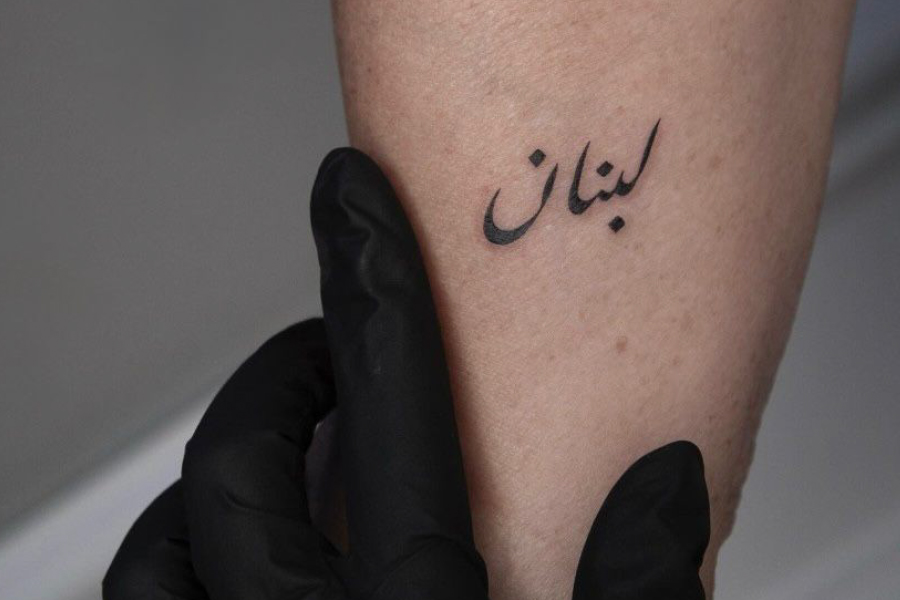Does a tattoo of the word “Lebanon” inked on U.S. Ambassador Lisa Johnson’s forearm truly signify her deep attachment to the country she served during three challenging years? As her tenure nears its end, and Lebanese-American diplomat Michel Issa prepares to take over, is this symbolic ink patch enough to reflect U.S. policy toward Lebanon?
Johnson remarked that “Lebanon will stay with me as long as this tattoo lasts.” But only days earlier, U.S. envoy Tom Barrack delivered a more forceful—if diplomatically phrased—warning: Lebanon risks becoming “part of Greater Syria” if it doesn’t meet Washington’s terms for a settlement, foremost among them the disarmament of Hezbollah.
As I was drafting this article on the outcome of Barrack’s third mission to Lebanon, news broke of the death of American professional wrestling icon Hulk Hogan, a larger-than-life figure who came to embody not just a sport, but American pop culture itself.
What does Hulk Hogan have to do with U.S. policy in Lebanon? As it turns out—everything.
I had two rare days off. During that brief break, I found myself reflecting on humanity, politics, and why Lebanon is forever born into peril. What crime did it commit to lie at the heart of a region plagued—since immemorial times —by sectarian, tribal, and political strife, with those battles playing out violently across its tiny landscape? Lebanon, it seems, is a wrestling ring in its own right.
Why does the global superpower—born of hardship and revolution, and the author of modern democratic principles—allow itself to betray the very doctrines it once championed, like President Woodrow Wilson’s principle of self-determination?
I flipped aimlessly through TV channels until I landed on a broadcast of American professional wrestling. I watched not as a fan, but as an observer. And suddenly, it all made sense. This—this is U.S. foreign policy.
A grand arena, packed with tens of thousands of spectators from all races, classes, and ages. Muscle-bound wrestlers in theatrical costumes. Lights, sound effects, massive props—all woven into a dazzling, Hollywood-style spectacle. Even figures like Donald Trump or Muhammad Ali occasionally make their way into the storyline.
Then, the match begins. Two wrestlers enter the ring, a referee joining them. They violate every rule imaginable—smashing chairs, interfering mid-match, even destroying the judges’ tables. The referee stands by, unbothered, unless one wrestler grabs the ropes—then suddenly, the rules matter.
Wrestling loses all meaning as a sport, becoming mere entertainment—scripted, exaggerated, profit-driven.
Sounds familiar?
America allows these “violations” to play out in both the wrestling ring and the geopolitical arena—so long as they serve its interests. But the moment someone grabs the ropes—challenges its authority—it intervenes under the guise of law and order.
This powerful and innovative nation, for all its democratic values, often abandons its moral compass when applying its policies—both at home and abroad. Now, it drags behind a trail of economic failures and foreign policy disappointments, flirting with insolvency, unable to secure decisive victories in Iraq or Afghanistan, or in its never-ending “war on terror.” It struggles to redraw the world map in its image—offering “new” versions of every region, like the “New Middle East”—only to find itself buried under a pile of self-inflicted crises.
All that’s missing is a U.S. president standing, Caesar-like, at the center of the arena. But alas, this Caesar is perpetually preoccupied—either campaigning for re-election through political stunts orchestrated by his entourage, or clearing the path for his successor, be it from Team Elephant or Team Donkey.
Meanwhile, in Lebanon, some still believe that recent Arab revolutions and shifting regional alliances will ultimately work in their favor. They dream of grabbing power, convinced that all roads lead to their grand strategic vision. They lie on their backs, complacent, occasionally issuing a statement or tweeting on X.
Others wait for U.S.-backed solutions, perhaps implemented by France, while international actors shuffle in and out. Yet Israeli attacks continue unabated—despite a supposed ceasefire. Then Barrack arrives, speaks, and leaves behind a cloud of uncertainty.
He says: “I don’t know about the guarantees you’re asking for. But we can’t force Israel to do anything. It’s up to you—your government and your people—to reach a consensus, to realize the need for greater understanding and peace with your neighbors if you want a better life.”
Barrack’s message is blunt: the U.S. brought you to power based on your agreement to its agenda—including its plan for Lebanon. But on the issue of weapons, you continue to stall, hiding behind internal justifications. I wash my hands, he implies—like Pontius Pilate—of Lebanon’s fate. You’ve exposed your borders to Israeli storms and taken no real step toward peace.
I came once. Then again. And now a third time. Enough.
That is how I interpret Barrack’s stance. Despite his Lebanese roots and reclaimed citizenship, he ignored the country’s fragile sectarian balance and existential fears. If things continue this way, Lebanon may vanish—left only as ink on an ambassador’s forearm.
God forbid.
And may Hulk Hogan rest in peace.
Please post your comments on:
[email protected]
 Politics
Politics







